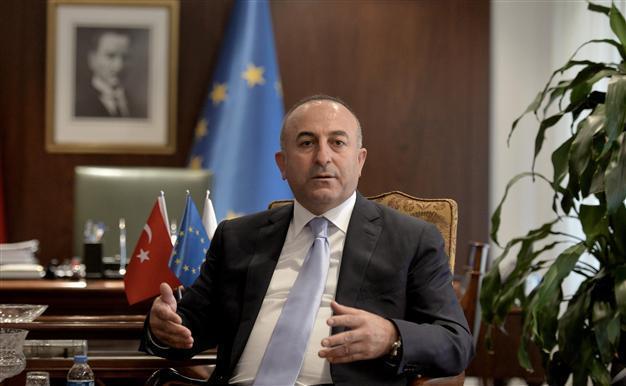Ankara ready for ‘a new era’ with EU in September
ANKARA

AA Photo
Ankara is gearing up for a “new period” with the European Union starting this autumn, with top Turkish officials heralding a new set of reforms and the possible opening of new negotiation chapters.“A new era will start in September in Turkey. This new era will be marked by reforms introduced more rapidly and in a more determined way,” Prime Minister Recep Tayyip Erdoğan told EU ambassadors June 24 at a luncheon in Ankara.
European Union Minister Mevlüt Çavuşoğlu, meanwhile, said Turkey had “fulfilled all of the benchmarks” with its reforms so far and was ready to open Chapter 23 (judiciary and fundamental rights).
“If political blockages are removed, then we are ready to open Chapter 23,” Çavuşoğlu told reporters during his meeting with British Ambassador Richard Moore. He said all EU member states, apart from Greek Cyprus, agreed with Turkey on the opening of Chapter 23.
Çavuşoğlu particularly recalled that a number of jailed deputies had recently been released and the retrials of some cases had been launched “thanks to the government’s steps to advance the realm of freedom and rule of law.”
Erdoğan said Turkey was trying to continue its EU membership bid “despite political obstacles,” citing the bloc’s criticism over Chapters 23-24. Like Chapter 23, Chapter 24 (justice, freedom and security) is also vetoed by Greek Cyprus. Ankara and Brussels recently agreed to form a working group to let Turkey set its criteria in the chapter. The judiciary is one of the areas where the Turkish government has long been criticized and it has been urged by the EU to resolve problems and continue reforms in this field.
In the same speech, Erdoğan also took the opportunity to respond to claims that Turkey supports radical groups in neighboring Iraq and Syria, branding the accusations “dirty propaganda.”
“I want you to know that we want a more efficient cooperation with the EU on this issue,” Erdoğan said, adding that the government had blacklisted a total of 5,300 suspected radicals and barred them from entering Turkey. Ankara has long championed robust support for Syria’s fragmented opposition, but the growing influence of al-Qaeda-affiliated groups in the war-torn country has left it open to accusations that it is backing radical Islamists.
















